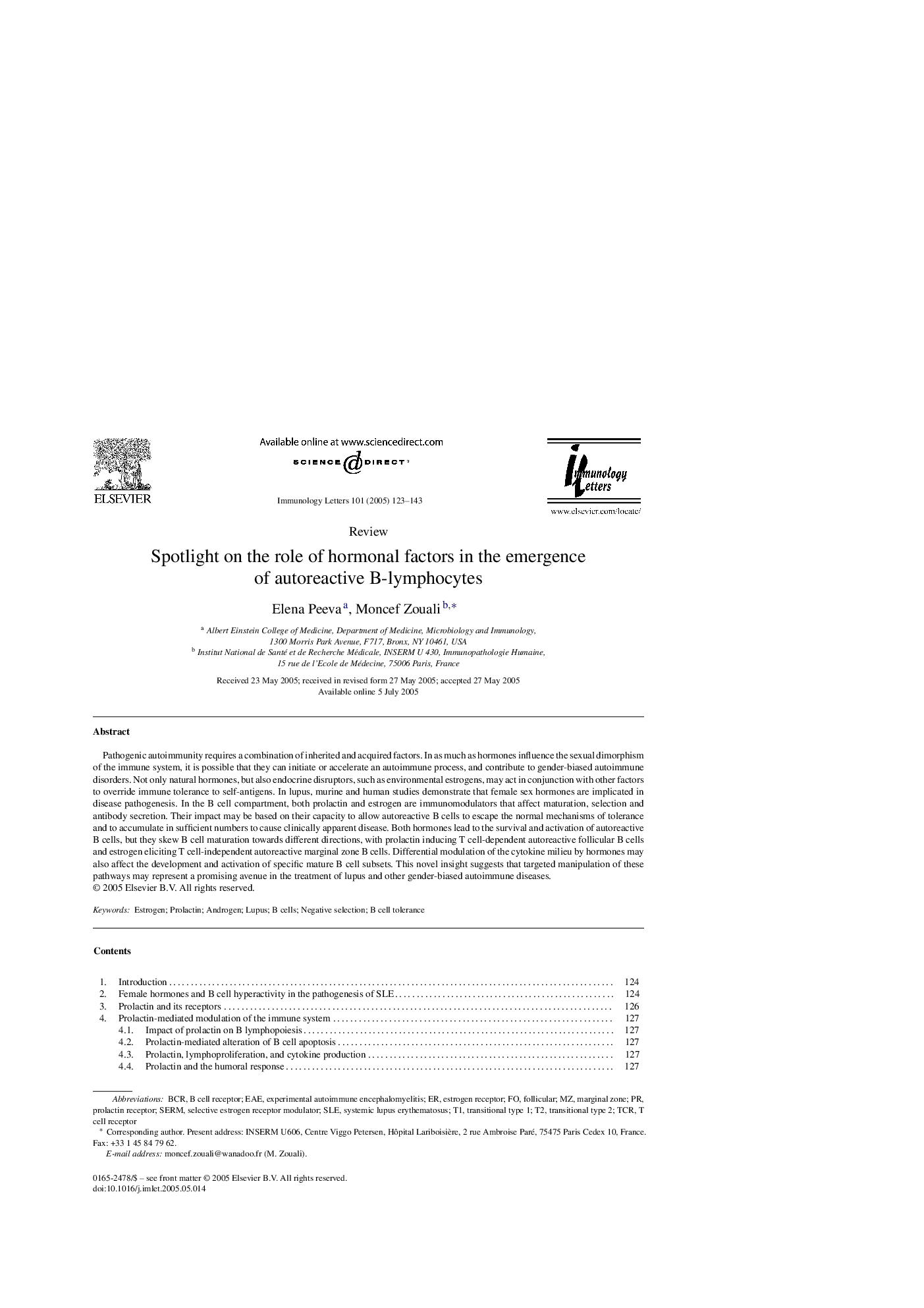| Article ID | Journal | Published Year | Pages | File Type |
|---|---|---|---|---|
| 9266190 | Immunology Letters | 2005 | 21 Pages |
Abstract
Pathogenic autoimmunity requires a combination of inherited and acquired factors. In as much as hormones influence the sexual dimorphism of the immune system, it is possible that they can initiate or accelerate an autoimmune process, and contribute to gender-biased autoimmune disorders. Not only natural hormones, but also endocrine disruptors, such as environmental estrogens, may act in conjunction with other factors to override immune tolerance to self-antigens. In lupus, murine and human studies demonstrate that female sex hormones are implicated in disease pathogenesis. In the B cell compartment, both prolactin and estrogen are immunomodulators that affect maturation, selection and antibody secretion. Their impact may be based on their capacity to allow autoreactive B cells to escape the normal mechanisms of tolerance and to accumulate in sufficient numbers to cause clinically apparent disease. Both hormones lead to the survival and activation of autoreactive B cells, but they skew B cell maturation towards different directions, with prolactin inducing T cell-dependent autoreactive follicular B cells and estrogen eliciting T cell-independent autoreactive marginal zone B cells. Differential modulation of the cytokine milieu by hormones may also affect the development and activation of specific mature B cell subsets. This novel insight suggests that targeted manipulation of these pathways may represent a promising avenue in the treatment of lupus and other gender-biased autoimmune diseases.
Keywords
Related Topics
Life Sciences
Immunology and Microbiology
Immunology
Authors
Elena Peeva, Moncef Zouali,
